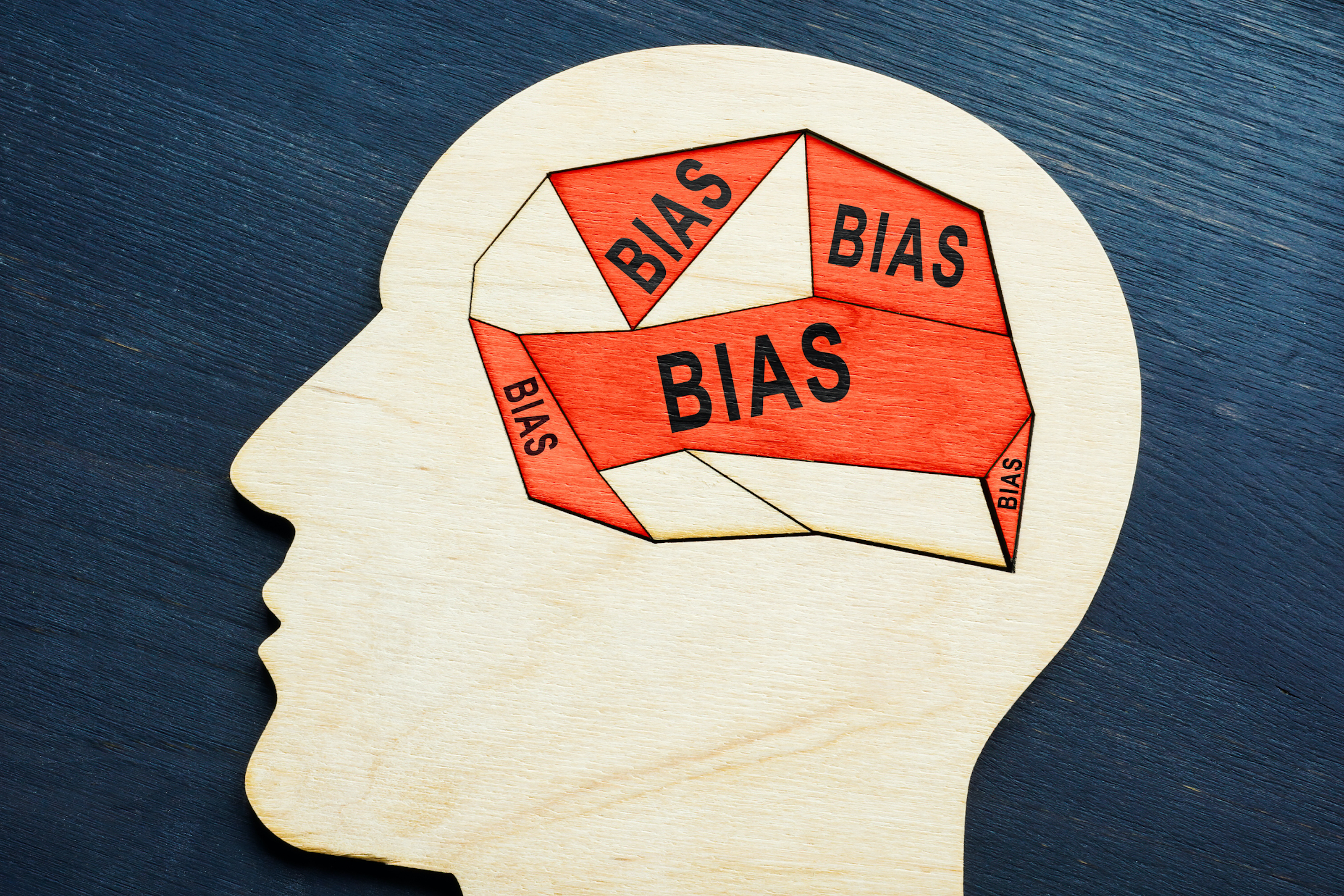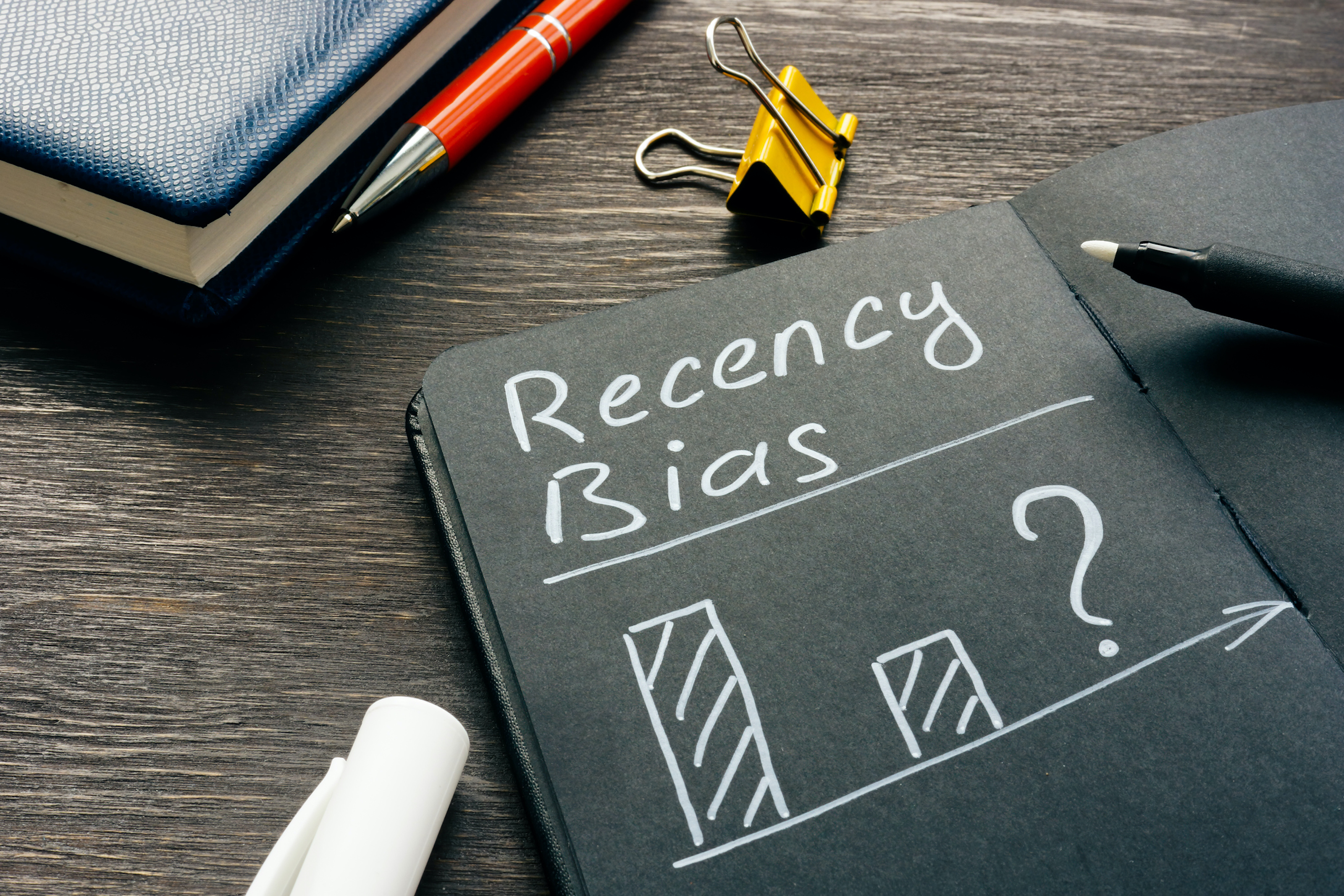The Psychology Behind Your Worst Investment Decisions
We can torpedo our portfolios without even realizing it. Avoiding these seven traps will allow you to make rational investments.

When it comes to investing, we have met the enemy, and it's us. Excited by profit and terrified of loss, we let our emotions and minds trick us into making terrible investing decisions. "As humans, we're wired to act opposite to our interests," says Sunit Bhalla, a certified financial planner in Fort Collins, Colo. "We should be selling high and buying low, but our mind is telling us to buy when things are high and sell when they're going down. It's the classic fear-versus- greed fight we have in our brains."
That tug of war can hamstring our portfolios, according to a 2021 Dalbar study of investor behavior. Dalbar found that individual fund investors consistently underperformed the market over the 20 years ending Dec. 31, 2020, generating a 5.96% average annualized return compared with 7.43% for the S&P 500 and 8.29% for the Global Equity Index 100.
If investors want to stop sabotaging their portfolios, an entire field of investing psychology is ready to enlighten them about their worst impulses. You may even recognize yourself in one or more of the investing behaviors described below, along with their remedies.

Fear of Missing Out
Like sheep, investors often take their cues from other investors and sometimes follow one another right over a market cliff. This herd mentality stems from a fear of missing out.
Whether it's GameStop, bitcoin or some other market fad, people often snap up an investment, not for its underlying value, but because they see everyone else buying it. "FOMO is crushing folks," says Rich Jones, Mountain View, Calif.-based founder of Paychecks and Balances, a career and personal finance podcast. "It's causing folks to break discipline. Whatever investing philosophy they previously adopted, a lot of folks are responding to what they're hearing from social media and the news."
To make matters worse, the COVID-19 pandemic ushered in a whole crew of novice investors, says Allison Schrager, senior fellow at the Manhattan Institute and author of An Economist Walks Into a Brothel: And Other Unexpected Places to Understand Risk (Portfolio, $16.) "Throughout the pandemic, people who never invested at all are personally day trading or buying bitcoin." Although Schrager approves of people taking an interest in investing, she's no fan of risky behavior. "You know it's bad now when you have people on TikTok giving financial advice, and they're just sharing momentum strategies."
The remedy: By the time you invest in whatever is trending, it's too late because professional investors trade the instant that news breaks. Individual investors should buy and sell based on the fundamentals of an investment, not the hype, Jones says.

Overconfidence
Some investors tend to overestimate their abilities. They believe they know better than everyone else about what the market is going to do next, says Aradhana Kejriwal, chartered financial analyst and founder of Practical Investment Consulting in Atlanta. "We want to believe we know the future. Our brains crave certainty."
Some people are so confident that they'll buy a stock right before an earnings call, expecting that the price will rise after the call and they can ride the wave. "That can be dangerous," Jones says. "If that stock falls, you find yourself in a place where you might be stuck with that money in that stock, waiting to get back to the baseline or whatever level is an acceptable loss."
Some investors even believe they know better than the evidence suggests. One of Kejriwal's clients is convinced that President Joe Biden's plan to increase taxes will trigger a market crash, but that's not what the data show. "The year before a tax increase, stocks [went] up 12 out of 13 times since 1939," Kejriwal says.
The remedy: To combat overconfidence, build in a delay before you buy or sell an investment so that the decision is made rationally. "Don't just act immediately, take time to consider things," Bhalla suggests. Wait a week and then see if you still want to buy or sell.

Living in an Echo Chamber
Overconfidence sometimes goes hand in hand with confirmation bias, which is the tendency to seek out only information that confirms our beliefs. Remember the dot.com craze from 20 years ago? Investors bid up the shares of internet companies, many with no earnings or hard assets, before losing their money when the bubble burst. We saw the same behavior a few years later with real estate, which also ended badly.
If we think an asset holds promise for riches, news about people making money sticks in our minds more than negative news, which we tend to dismiss. "You're going to confirm your preconceptions," Kejriwal says. An endless stream of news and opinions online makes it easy to find something that reinforces your views. "Say somebody thinks bitcoin is a good investment, they can get a lot of information that supports buying bitcoin, whether blogs or podcasts or YouTube videos," Bhalla says.
The remedy: To counteract this bias, actively seek out information that contradicts your thesis. "Look for twice the articles that oppose your viewpoint to make sure you consider both sides of it before making a decision," he says. You could also imagine that you're advising a friend on the investment and what you'd say that they should do to protect their interests.

Loss Aversion
Our brains feel pain more strongly than they experience pleasure. As a result, we tend to act more irrationally to avoid losses than we do to pursue gains. "Losing $100 feels twice as bad as gaining $100," Bhalla says. "When markets are going down, we want to sell because we're worried about losing even more." Similarly, when you're shopping, you pay more attention to one negative review on Amazon than the hundreds of positive reviews for a seller or product. "So often, we lean into the negative things we've experienced, and that shapes the way we think about investing," says Chris Browning, founder and host of the Popcorn Finance podcast.
The remedy: Stock market losses, however, are inevitable. "No risk, no reward is a cliché, but for some reason we never internalize it," notes Schrager. If seeing the losses pile up in a down market is too hard for you, simply don't look. Have faith in your long-term investing strategy, and check your portfolio less often. "Constantly checking and looking at what you're invested in may cause more stress," Browning says. "The market is so volatile, and it doesn't move logically."

No Patience for Sitting Idly By
As humans, we're wired for action. Sitting on our hands feels uncomfortable. That compulsion to act is known as action bias, and it's one reason individual investors can't outperform the market -- we tend to trade too often. Doing so not only incurs trading fees and commissions, which eat into returns, but more often than not, we realize losses and miss out on potential gains. "You get into the loop of selling at the low point and buying at the high point," Kejriwal says.
The remedy: Investors need to play the long game. Resist trading just for the sake of making a decision, and just buy and hold instead.

Gambler's Fallacy
"This is the tendency to overweight the probability of an event because it hasn't recently occurred," says Vicki Bogan, associate professor at Cornell University.
Imagine a roulette wheel. If red comes up 15 times in a row, we think that black is due to hit soon. But every spin of the wheel carries the same exact odds and no greater likelihood of a different outcome. The same is true for the stock market. Over time, the probability of equities having an up year or a down year is about the same, regardless of the previous year's performance. That's true for individual stocks as well.
The remedy: When stocks go down, don't just assume they'll come back up. "You should be doing some analysis to see what's going on," Bogan says.

Recency Bias
You see the disclaimer on every fund prospectus: Past performance is no guarantee of future results. Our minds, however, tell us something different. "Most people think what has happened recently will continue to happen," Bhalla says. It's why investors will plow more money into a soaring stock market, when in fact they should be selling at least some of those appreciated shares. And if markets plummet, our brains tell us to run for the exits instead of buying when share prices are down.
The remedy: You can combat this impulse by creating a solid, balanced portfolio and rebalancing it every six months. That way, you sell the assets that have climbed and buy the ones that have fallen. "It forces us to act opposite to what our minds are telling us," he says.
Profit and prosper with the best of Kiplinger's advice on investing, taxes, retirement, personal finance and much more. Delivered daily. Enter your email in the box and click Sign Me Up.
Katherine Reynolds Lewis is an award-winning journalist, speaker and author of The Good News About Bad Behavior: Why Kids Are Less Disciplined Than Ever – And What to Do About It. Her work has appeared in The Atlantic, Fortune, Medium, Mother Jones, The New York Times, Parents, Slate, USA Today, The Washington Post and Working Mother, among others. She's been an EWA Education Reporting Fellow, Fund for Investigative Journalism fellow and Logan Nonfiction Fellow at the Carey Institute for Global Good. Residencies include the Virginia Center for the Creative Arts and Ragdale. A Harvard physics graduate, Katherine previously worked as a national correspondent for Newhouse and Bloomberg News, covering everything from financial and media policy to the White House.
-
 Cord Cutting Could Help You Save Over $10,000 in 10 Years
Cord Cutting Could Help You Save Over $10,000 in 10 YearsHow cutting the cord can save you money and how those savings can grow over time.
-
 The '8-Year Rule of Social Security' — A Retirement Rule
The '8-Year Rule of Social Security' — A Retirement RuleThe '8-Year Rule of Social Security' holds that it's best to be like Ike — Eisenhower, that is. The five-star General knew a thing or two about good timing.
-
 Stock Market Today: Stocks Swing as Trump Scraps Canada Trade Talks
Stock Market Today: Stocks Swing as Trump Scraps Canada Trade TalksDespite a mid-afternoon slip, the S&P 500 and Nasdaq ended the day at new record highs.
-
 Stock Market Today: S&P 500, Nasdaq Near New Highs
Stock Market Today: S&P 500, Nasdaq Near New HighsThe S&P 500 hasn't hit a new high since February. It's been since December for the Nasdaq.
-
 Stock Market Today: Stocks Struggle to Sustain Gains
Stock Market Today: Stocks Struggle to Sustain GainsMixed messages from multiple sources continue to make for a messy market for investors, traders and speculators.
-
 Stock Market Today: Stocks Soar on Israel-Iran Ceasefire
Stock Market Today: Stocks Soar on Israel-Iran CeasefireIt was a rocky start to the truce, but a temporary halt to fighting between Israel and Iran appears to be holding for now.
-
 The Riskiest S&P 500 Stocks Right Now
The Riskiest S&P 500 Stocks Right NowBuyer beware: These are five of the riskiest stocks in the S&P 500 at the moment, based on one measure of volatility.
-
 Stock Market Today: Stocks Rise on a Little More Uncertainty
Stock Market Today: Stocks Rise on a Little More UncertaintyThe best response to a major geopolitical event is often no response at all, especially if you're looking at the big picture.
-
 Stock Market Today: Stocks Chop as Chipmakers Decline
Stock Market Today: Stocks Chop as Chipmakers DeclineSeveral semiconductor stocks fell Friday on reports that the White House may consider revising license waivers for global chipmakers.
-
 Stock Market Today: Stocks Grapple for Peace Trade Gains
Stock Market Today: Stocks Grapple for Peace Trade GainsOf course dramatic tension is high on Fed Day, only this time it's about war and peace as well as monetary policy.
